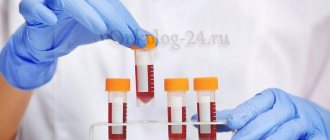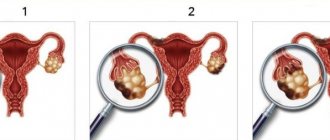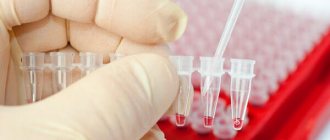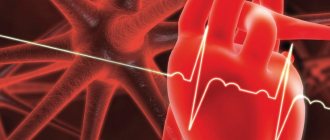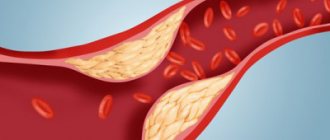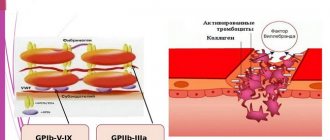general information
Being part of the group of high-molecular proteins, this protein is produced by malignant neoplasms of various localizations. What does the tumor marker Ca 72-4 show? It reflects the process of mutation of the cells of the main focus in the stomach, lungs, ovaries, etc., as well as their metastases. In addition, benign tumors can be identified based on inflated values. It is distinguished from other antigens by its low sensitivity, which necessitates its combination with other types of studies. It is worth noting that as cancer cells spread, the values increase greatly.
Diagnostics is performed in most cases 2 times:
- during the initial examination, when it is necessary to determine the root cause of the disease;
- about a month after surgery - treatment is considered effective if the indicators decrease. If the interpretation of the tumor marker Ca 72-4 is identical and the norm is exceeded, the patient is prescribed repeated comprehensive monitoring.
When performing the analysis, an immunochemical method with electrochemiluminescence detection is used, and the biomaterial is blood from the patient’s vein.
It is in a vacutainer and is suitable for study within 24 hours, subject to strict adherence to the temperature regime. Depending on the laboratory, the test system, the presence of a gel phase and anticoagulant in the transport medium, as well as reference parameters may vary. Consult an Israeli specialist
Indications for analysis
A study of the CA 72-4 tumor marker is prescribed if signs of a cancerous tumor are detected in the gastrointestinal tract. The reasons for this test may be the following disturbances in processes in the body:
- regular nausea with bouts of vomiting, while the vomit looks like coffee grounds;
- aversion to meat products;
- impaired stomach functionality;
- noticeable increase in abdominal volume;
- loose black stools;
- long-term deviations in ROE, indicating a constant inflammatory process in the body.
Also, the CA 72-4 tumor marker may be prescribed if there is a suspicion of the formation of malignant tumors of the ovaries, cervix, pancreas or lungs. Despite the high sensitivity of this analysis in the event of gastrointestinal cancer, normal results of a blood test cannot guarantee the exact absence of oncological pathology. Treatment for stomach cancer is prescribed only after determining the exact picture and undergoing a full examination.
The doctor may order blood tests for the tumor marker CA 72-4 to determine metastasis or the possibility of relapse. In the case of determining metastasis, the accuracy of the results is 74%. Accurate diagnosis requires repeated (on average every three months) repetition of this study to fully monitor the dynamics of progression. In this way, the effectiveness of the treatment can be assessed.
Combination with other tests
Examination of a patient with suspected cancer is most accurate and informative when combining testing for excess of the norm with several antigens.
Basically, the tumor marker Ca 72-4 is analyzed for gastric cancer along with CEA and Ca 19-9. Combination with Ca 125 is necessary to detect tumors in the ovaries. Various sources place the sensitivity of the test in the range of thirty to eighty percent.
There is a direct relationship between the degree of excess of the norm and the stage of the disease, and it is more effective to detect elevated high molecular weight glycoprotein together with CEA in recurrent cancer.
Important! By limiting yourself to one analysis, you can detect a relapse in 78% of cases, and with a combined approach, the probability increases to almost ninety percent.
Therefore, you should not think that you were just prescribed two tests at once - this is necessary so that the doctor can be completely confident in the correctness of the diagnosis. If we talk about the financial side of the issue, the costs will not necessarily be exorbitant. When undergoing an examination in Israel, you do not need to pay a lot of money, but the accuracy and efficiency of interpretation will be guaranteed.
CA 72-4 cancer marker
CA 72 4 - is a complex high-molecular glycoprotein (protein containing a carbohydrate component) of the mucin-like type, which is formed by synthesis on the surface of the epithelium. The tumor marker CA72-4 was first described in the study of breast adenocarcinoma. In most cases, the reason for the appearance of this tumor marker in the blood of men and women is the development of cancer cells in various organs of the human body:
- Gastrointestinal tract;
- Breast;
- Ovaries;
- Pancreas;
- Reproductive system.
But predominantly this tumor marker CA 72-4 is detected as a tumor marker of the gastric mucosa.
Who is the procedure indicated for?
Tumor marker Ca 72-4 must be determined when:
- Studying the behavior of ovarian and stomach tumors in dynamics.
- Establishing the effectiveness of surgery and further monitoring the patient’s condition and preventing relapses.
- Detection of metastatic formations.
- Differential diagnosis of cancer and somatic diseases.
- Manifestations of oncology, for example, if we are talking about damage to the stomach, then indications may include a change in the color of the stool to black, attacks of nausea and vomiting, bloating and slow digestion of food.
The first thing that concerns patients who receive the results is how much the tumor marker Ca 72-4 should be normal and when there is reason to suspect cancer of the stomach, pancreas, intestines or other organ. It is considered acceptable if the antigen content does not exceed 6.9 units per milliliter of biomaterial, while gender or age do not affect the norm. If the patient has low values, this may be evidence of:
- stage zero of oncology, when the amount of protein synthesized by the tumor is insufficient to be detected by laboratory methods;
- the success of the chosen treatment tactics;
- absence of malignant neoplasms in the body.
What indications determine the purpose of analysis for CA 72-4
The oncologist prescribes a blood serum test for CA 724 if the patient has had the “minor signs” syndrome for a long time:
- Prolonged absence or complete loss of appetite;
- Development of physical weakness and rapid fatigue of the body;
- Nausea and vomiting of unknown etiology;
- Increased content of undigested muscle fibers in the feces (creatorrhoea);
- Presence of blood in stool;
- Disruption of the gastrointestinal tract;
- Reduced hemoglobin content in the blood (anemia);
- Digestive disorder (dyspepsia);
- Hereditary predisposition to stomach cancer.
Competent interpretation
The abundance of medical portals and advice on how to decipher certain tests often leads to self-diagnosis, which is very dangerous. Only the doctor knows in detail what tumor marker 72-4 is responsible for and what is evidenced by a slight or significant excess of the reference value. It’s definitely not worth risking your health because of an incorrect diagnosis, especially since you have the opportunity to consult with leading oncologists in Israel and undergo examination in one of the world’s best laboratories.
Here are some more reasons to trust the experts:
- they evaluate not individual symptoms and indicators, but the overall picture, including the clinical manifestations of the disease (if any), which minimizes the likelihood of an erroneous diagnosis;
- based on the results, additional studies may be prescribed to clarify the stage of cancer, tumor localization and the presence of metastases in nearby and distant organs;
- Having transcripts of past tests in hand, the doctor monitors the course of the disease and the progress of treatment over time;
- the patient himself does not have to waste time and mental energy trying to understand complex medical terms;
- An experienced oncologist knows what additional nuances to pay attention to, in particular, he studies the family history in detail, takes into account concomitant diseases and the general condition of the patient.
Now let's figure out what the tumor marker Ca 72-4 shows, because inflated numbers can indicate not only cancer. An increase in values is typical for such non-oncological diseases as:
- chronic bronchitis;
- liver dysfunction (cirrhosis);
- benign neoplasms of the digestive system;
- pancreatitis (a group of syndromes associated with inflammatory processes in the pancreas);
- breast diseases;
- stomach ulcer, colitis (ulcerative and chronic), diverticulitis and Crohn's disease;
- rheumatoid arthritis and other inflammatory processes in connective tissues;
- gastroesophageal reflux;
- polyps in the stomach;
- cysts of different localization.
If the level is increased precisely because of cell mutation, then the tumor may be located in the lungs, endometrium, pancreas or mammary gland, colorectal region, gastrointestinal tract or ovaries.
The duration of the analysis is 1-2 days, and for many patients it is done several times, since a single excess is not reliable evidence of oncology. The final diagnosis is made only after histological examination of the biopsy specimen.
TAG 72 Analysis Transcript
The oncologist deciphers the test result. He determines at what stage the tumor is developing and selects the most effective treatment method.
In gastric adenocarcinoma, elevated CA 72.4 is detected in approximately 90% of cases. Timely surgical intervention brings the level of tumor marker concentration back to normal in 2-4 weeks.
To identify metastases and possible relapses, the oncologist also prescribes an oncotest for CA 72-4. The accuracy of the study result for metastasis is 74%. To fully monitor the dynamics of the development of metastases and relapses, this study is repeated every three months. This will allow you to find out how good the treatment was.
When metastases and relapse of the disease occur, the level of cancer antigen is often higher than normal. In this case, in order to increase the sensitivity of testing, testing for the CA72-4 tumor marker is carried out in combination with CEA.
During long-term monitoring, consistently high levels of CA 72-4 are often observed in the presence of remnants of gastric adenocarcinoma.
The high rate of diagnostic specificity for benign pathologies, more than 95% of cases, is a significant superiority of CA 72-4 over other tumor markers. Diagnostic sensitivity for the development of benign diseases in the gastrointestinal tract averages 40% - 46%.
For ovarian carcinoma, the diagnostic sensitivity rate is about 47-80%.
For rectal cancer, diagnostic sensitivity is 25-41%.
Subsequent collection of biological material is carried out a couple of weeks after the necessary therapy. A decrease in the tumor marker level indicates that the treatment is progressing well and the patient has a significant chance of a successful outcome. If the level is elevated, then the treatment method is radically changed. And the indicator is within normal limits - about the absence of malignant neoplasms.
The risk of complications of developing a disease of malignant origin increases significantly in cases of self-diagnosis and self-medication. Always remember that the chance of recovery will be significantly increased if the tumor is detected at an early stage. Treatment will become much more complicated when the cancer reaches stage II or III. And in stage IV it may not help at all.
Before taking the analysis
Confidence that the tumor marker Ca 72-4 is exceeded due to tumor formation or the values are low due to effective therapy can only be guaranteed if a number of conditions are met. First, you need to go to a high-quality medical center such as Assuta in Israel. Secondly, do not forget about preparing for the examination. Most important:
- do not drink alcohol at least three days before your visit to the laboratory;
- eat healthy food for 3 days before the examination - it is necessary to exclude smoked and fatty foods, exotic fruits, and peppered dishes from the usual menu;
- do not eat for at least 8 hours before submitting the biomaterial - as a last resort, drinking small amounts of water is allowed;
- enter the office calm - if a person is worried, special substances are released into the blood that can affect the result and decoding of the elevated tumor marker Ca 72-4;
- take blood samples in the morning;
- minimize physical activity a couple of days before the test;
- stop taking medications.
Sometimes patients, for one reason or another, cannot refuse drug therapy (for example, with chronic heart or kidney failure, epileptic seizures, diabetes, etc.). They should contact their doctor in advance and report this fact. In addition to this information, the doctor needs to tell you whether you have had a CT, MRI or ultrasound scan in the last week. Knowing all this, he will be able to determine exactly what the tumor marker Ca 72-4 means in your case, and this is what will allow you to make the correct diagnosis and begin treatment immediately.
Tumor marker normal
The level of the CA 72-4 marker in the blood remains the same for patients regardless of their age and is equal to the limit from 0 to 6.9 U/ml. Often the examination is carried out in conjunction with other antigens - CA 125, 19-9 and 15-3. High diagnostic accuracy is evident in oncological pathologies of the gastrointestinal tract and pancreas. The amount of antigen varies depending on the location of the tumor and the stage of its development.
The table of indicators emphasizes that when the process of metastasis appears, the accuracy of the examination decreases to 25-30%. After effective surgical excision of the tumor growth, the CA 72-4 marker indicator is restored within 30 days. A single test for the presence of a marker in the stomach cannot detect a mass in the body. If deviations in the results appear, the person undergoes a more thorough examination.
Reasons for the increase
If the tumor marker CA 72-4 increases, a dynamic study of the level of this antigen is prescribed. If CA 72-4 levels increase, the following may cause this:
- the presence of a cancerous tumor in the stomach;
- formation of tumors within the colon;
- mucinous tumors of the ovaries;
- metastasis.
Monitoring changes in the level of antigen indicators allows you to accurately assess the effectiveness of treatment and, if necessary, change the treatment strategy. At an advanced stage of oncology, the increase in the level of tumor markers can be 2 times the norm. Along with the analysis of the tumor marker CA 72-4, patients are prescribed an ultrasound, FGDS, general and biochemical blood tests, and blood tests for hemoglobin levels. Occasionally, the indicator may be increased with benign neoplasms.
It is worth understanding that the absence of this protein in the blood does not provide an exact guarantee of the absence of cancer, therefore the study of the CA 72-4 tumor marker is considered only part of a comprehensive diagnosis. Monitoring the dynamics of antigen levels after surgery makes it possible to timely identify the possibility of tumor recurrence or the presence of metastases. The appearance of metastases in cancer occurs without specific symptoms, while the study of tumor markers allows them to be identified even without a clear clinical picture.
